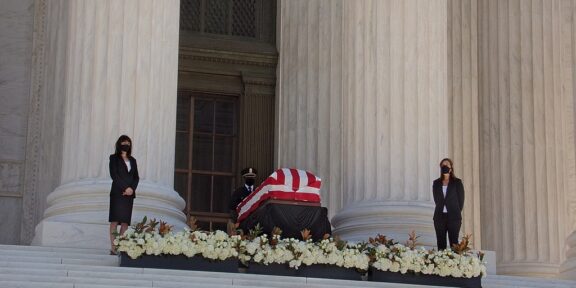‘As Far as I’m Concerned, I Am Ready,’ Ex-President Says
The days of Jean-Bertrand Aristide living in exile in South Africa may soon come to an end. On Monday, the Haitian government said that it has issued the former president a passport, which will allow him to return to Haiti, according to the AFP.
The initial steps were taken toward Aristide’s return after the Haitian government said a diplomatic passport would be issued upon the request of the former president, Fritz Longchamp, general secretary for the presidency, told Reuters last Tuesday.
The statement came after Aristide and supporters around the globe petitioned for his return.
“Since my forced arrival in the mother continent six and a half years ago, the people of Haiti have never stopped calling for my return to Haiti,” Aristide said in a statement on Jan. 19.
Aristide has been living in South Africa since 2004 after a coup d’etat led by U.S. and international allies. The Lavalas party, to which Aristide belongs, continues to have a strong presence in Haiti that could trigger civil unrest in the country.
The Lavalas party was banned from participating in the 2010 elections.
Aristide said his return is “indispensable for medical reasons.” The ex-president says that the winters in South Africa cause “unbearable pain” and “must be avoided in order to reduce any risk of further complications and blindness.”
However, many are concerned that Aristide’s presence in Haiti may potentially be more chaotic.
“It’s not the same thing as President Duvalier,” Eugene Newry, former Bahamian Ambassador to Haiti and Dominican Republic, said in The Bahamas Tribune on Jan. 27. “His party is still there, and Aristide is a consummate politician, consummate. Plus, he is an intellectual. He has written 17 books and speaks eight languages. There is no comparison.”
Reginal Cesar, a Montgomery County resident who moved from Haiti to the United States in 2005, said all Haitians need to come together and set aside differences.
“The No. 1 issue that needs to be addressed is unity among all parties and class,” Cesar said. “When that is done, the elected president will have the support and the country will be able to move forward.”
On Saturday, Aristide wrote in the United Kingdom-based newspaper the Guardian that he will focus on education when he returns to Haiti
“Education has been a top priority since the first Lavalas government—of which I was president—was sworn into office under Haiti’s amended democratic constitution on 7 February 1991 (and removed a few months later),” he wrote.
“More schools were built in the 10 years between 1994, when democracy was restored, and 2004—when Haiti’s democracy was once again violated—than between 1804 to 1994: 195 new primary schools and 104 new public high schools constructed and/or refurbished.”
Aristide also said that though many needs must be addressed in Haiti, education is key.
“Even though their basic needs have increased exponentially, their readiness to learn is manifest,” he wrote. “This natural thirst for education is the foundation for a successful learning process: What is freely learned is best learned.”
Cesar says that all Haitians need to come back and form a brotherhood for the advancement of Haiti.
“I’m glad they accept him to go back to his country,” said Cesar, who admits he is not a supporter of Aristide. “Right now, Haiti needs everybody. Anybody who can help needs to come back”



